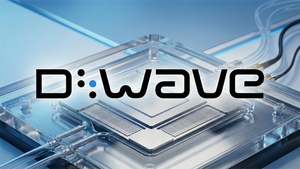NEW YORK, July 09, 2024 (GLOBE NEWSWIRE) -- Bragar Eagel & Squire, P.C., a nationally recognized shareholder rights law firm, reminds investors that class actions have been commenced on behalf of stockholders of Sprout Social, Inc. (NASDAQ: SPT), UnitedHealth Group Incorporated (NYSE: UNH), Vestis Corporation (NYSE: VSTS), and Teladoc Health, Inc. (NYSE: TDOC). Stockholders have until the deadlines below to petition the court to serve as lead plaintiff. Additional information about each case can be found at the link provided.
Sprout Social, Inc. (NASDAQ: SPT)
Class Period: November 3, 2021 - May 2, 2024
Lead Plaintiff Deadline: July 12, 2024
On May 2, 2024, after the markets closed, Sprout Social announced the Company’s operating results for the first fiscal quarter of 2024, disclosing that the Company had missed its revenue guidance for the quarter. The company also revised its full year 2024 revenue guidance downward $20 million. The Company’s Chief Financial Officer (“CFO”) Joe Del Preto (“Del Preto”) stated the Company had “underestimated the magnitude of enterprise seasonality” and that the Company had also been “self-inducing sales execution headwinds.” During the earnings call held on the same day, the Company’s Present and incoming Chief Executive Officer (“CEO”), Ryan Barretto (“Barretto”) disclosed that the Company “made several important strategic decisions heading into Q1” which the Company “thought [it] could manage [] without disruption, but they collectively set us back.” Barretto stated these decisions “happened in Q4 and the execution of it happened in Q1.” Barretto further disclosed the Company’s shift in business had “changed materially” and “affect[ed] revenue recognition and planning” which would now be “heavily weighted to traditional enterprise buying cycles.” Justyn Howard (“Howard”), the Company’s current CEO, also disclosed that the Company had to spend “energy and calorie” in the first quarter on “tactical decisions” including “spending time with the team on Tagger enablement.” Barretto explained further, stating “[f]rom a sales team perspective, the maturity of the sales team, we did a lot of enablement in Q1 across our entire customer-facing or to make sure that we are up to speed with all of the elements of influencer and our Tagger platform.”
On this news, Sprout Social’s stock price fell $19.33, or 40.1%, to close at $28.82 per share on May 3, 2024, on unusually heavy trading volume.
The complaint filed in this class action alleges that throughout the Class Period, Defendants made materially false and/or misleading statements, as well as failed to disclose material adverse facts about the Company’s business, operations, and prospects. Specifically, Defendants failed to disclose to investors: (1) the Company’s sales and revenue growth were not indicative of the Company’s growth as it transitioned to an enterprise sales cycle; (2) that the Company faced integration challenges with its acquisition of Tagger; (3) as a result, the Company was “self inducing sales headwinds;” (4) as a result, the Company would revise fiscal year 2024 revenue guidance; and (5) that, as a result of the foregoing, Defendants’ positive statements about the Company’s business, operations, and prospects were materially misleading and/or lacked a reasonable basis.
For more information on the Sprout Social class action go to: https://bespc.com/cases/SPT
UnitedHealth Group Incorporated (NYSE: UNH)
Class Period: March 14, 2022, - February 27, 2024 (Common Stock Only)
Lead Plaintiff Deadline: July 16, 2024
UnitedHealth is an American multinational health insurance and services company comprised of two distinct and complementary businesses: Optum and UnitedHealthcare. UnitedHealthcare provides health insurance to individuals, employers, and small businesses and is the largest insurance provider in the United States. Optum provides healthcare-related services, including software solutions, payment services, and data analytics.
On January 6, 2021, UnitedHealth announced an agreement to acquire Change Healthcare (“Change”) and integrate it into its Optum business. Change is a healthcare technology company that provides data solutions aimed at improving clinical decision making and simplifying payment processes across the healthcare system. On February 24, 2022, the U.S. Department of Justice (“DOJ”) filed a lawsuit challenging UnitedHealth’s acquisition of Change. The DOJ alleged that the proposed acquisition would violate antitrust laws because the integration of Change and Optum would give UnitedHealth unparalleled access to information regarding nearly every health insurer, as well as health data on every single American. Ultimately, the court in the DOJ action permitted the acquisition, repeatedly crediting UnitedHealth’s firewall policy and commitment to preventing the sharing of data between UnitedHealthcare and Optum as the rationale for allowing the deal to proceed.
The complaint alleges that, throughout the Class Period, UnitedHealth repeatedly assured investors that it had taken steps to avoid anti-competitive behavior, including by setting up “robust firewall processes” to prevent customer sensitive information (“CSI”) from being shared between UnitedHealthcare and Optum after the merger. Specifically, UnitedHealth explicitly stated that Optum “invests extraordinary time, money, and resources into safeguarding [CSI] and keeping it walled off from UnitedHealthcare” and that “UnitedHealth Group’s existing firewalls and data-security policies prohibit employees from improperly sharing external-customer CSI.” As a result of these misrepresentations, UnitedHealth stock traded at artificially inflated prices during the Class Period.
The complaint further alleges that the truth emerged on February 27, 2024, when the Wall Street Journal reported that the DOJ had re-opened its antitrust investigation into UnitedHealth. In that article, the public learned for the first time that the DOJ was investigating the relationships between the Company’s various segments, including Optum. As a result of this disclosure, the price of UnitedHealth stock declined by $27 per share, erasing nearly $25 billion in shareholder value.
For more information on the UnitedHealth class action go to: https://bespc.com/cases/UNH
Vestis Corporation (NYSE: VSTS)
Class Period: October 2, 2023 - May 1, 2024 (Common Stock Only)
Lead Plaintiff Deadline: July 16, 2024
Based in Roswell, Georgia, Vestis is a provider of uniforms and workplace supplies in the United States and Canada. The Company was created as the result of its September 30, 2023 spinoff from food services and facilities management provider Aramark. Vestis began trading on the New York Stock Exchange on October 2, 2023, the first day of the Class Period, under the ticker symbol “VSTS.”
Leading up to Class Period before the spinoff, soon-to-be executives of Vestis claimed that “investments are in place” to deliver “5% to 7% topline growth” on compound annual growth rate (CAGR). They also assured investors that the Company’s sales force had “reached their stride” and were “now hitting productivity levels that we desire from them.” As the Class Period progressed, Defendants highlighted the “really, really great feedback” that Vestis had received from its customer service initiatives and maintained that the Company’s growth would continue to accelerate based on, among other things, Vestis “providing service excellence to our customers.”
The Class Action alleges that, during the Class Period, the Defendants made materially false and misleading statements and failed to disclose that: (1) Aramark had historically underinvested in the business that became Vestis; (2) Vestis operated with outdated facilities and an underperforming sales force; (3) Vestis’s outdated facilities and underperforming sales force led to “service gaps” that had impeded the Company’s levers of growth and had resulted in customer attrition; and (4) as a result of the above, Defendants’ statements about Vestis’s business, operations, and prospects were materially false and misleading and/or lacked a reasonable basis at all relevant times.
The class action further alleges that the truth was revealed before markets opened on May 2, 2024, when Vestis issued a press release announcing financial results for the second quarter of fiscal year 2024, ended March 29, 2024. Specifically, the Company disclosed that it had generated revenue of $705 million, a 0.9% increase over the same quarter in the prior year, and also had downwardly revised its revenue outlook for fiscal year 2024 to a range of negative 1% to 0%. During the corresponding earnings call with analysts that day, Chief Executive Officer (“CEO”) Kimberly Scott revealed the “challenges” facing the Company related “to sales productivity and deliberate moderated pricing actions,” the latter of which CEO Scott explained were necessary to “improve[] retention” and because “service gaps” had “driven price sensitivity.” During the same call, analysts pointed out that Vestis had pivoted from a recent announcement of a price increase to a price decrease and questioned Defendants about the reversal in pricing capabilities.
On this news, the price of Vestis stock plummeted 45%, from a closing price of $18.47 per share on May 1, 2024, to a closing price of $10.16 per share on May 2, 2024.
For more information on the Vestis class action go to: https://bespc.com/cases/VSTS
Teladoc Health, Inc. (NYSE: TDOC)
Class Period: November 2, 2022 - February 20, 2024
Lead Plaintiff Deadline: July 16, 2024
Teladoc provides online, direct-to-consumer health service services. BetterHelp is Teladoc’s largest division and contributes the Company’s greatest revenue share, contributing about 42% of overall revenue.
The Teladoc class action lawsuit alleges that defendants throughout the Class Period made false and/or misleading statements and/or failed to disclose that: (i) Teladoc continued to expand its marketing spend throughout 2023, despite public assurances that it would pull back its advertising spending; (ii) increased marketing spend on BetterHelp deteriorated Teladoc’s revenue, with little return for that investment; (iii) despite Teladoc’s acknowledgment that increased advertising spend would be marginally inefficient due to market saturation, it continued to grow its advertising spend in the BetterHelp business; and (iv) despite public statements that there remained “a long runway” for BetterHelp membership growth, BetterHelp’s membership stagnated and then decreased in 2023, due to market saturation, largely due to BetterHelp’s own marketing.
The Teladoc class action lawsuit further alleges that on February 20, 2024, Teladoc released its fourth quarter of 2023 earnings report on Form 10-K, which demonstrated substantially increased advertising costs “substantially driven by higher digital and media advertising costs related to BetterHelp.” Teladoc also revealed that BetterHelp revenue fell $1 million compared to the year prior and fell about $10 million from the third to the fourth quarter of 2023; that BetterHelp lost members for two consecutive quarters, despite that increased advertising spend; and that Teladoc’s revenue was flat compared to the prior year and down 3% sequentially – well below expectation, according to the complaint. On this news, the price of Teladoc’s shares fell by more than 23%, according to the Teladoc class action lawsuit.
For more information on the Teladoc class action go to: https://bespc.com/cases/TDOC
About Bragar Eagel & Squire, P.C.:
Bragar Eagel & Squire, P.C. is a nationally recognized law firm with offices in New York, California, and South Carolina. The firm represents individual and institutional investors in commercial, securities, derivative, and other complex litigation in state and federal courts across the country. For more information about the firm, please visit www.bespc.com. Attorney advertising. Prior results do not guarantee similar outcomes.
Contact Information:
Bragar Eagel & Squire, P.C.
Brandon Walker, Esq.
Marion Passmore, Esq.
(212) 355-4648
investigations@bespc.com
www.bespc.com






